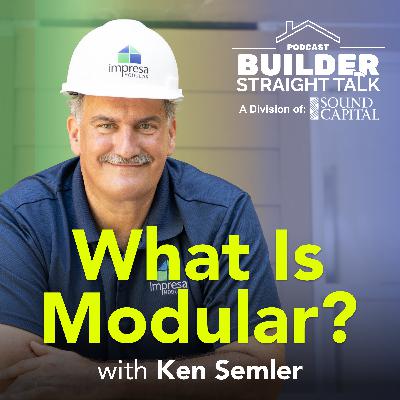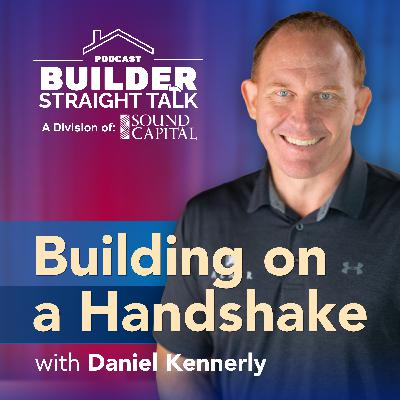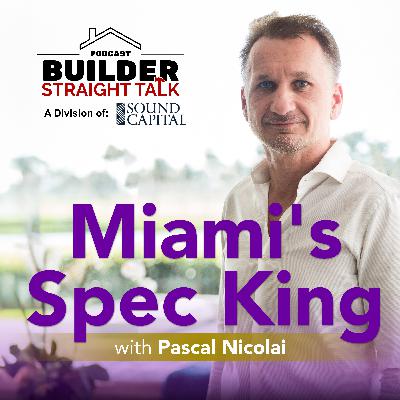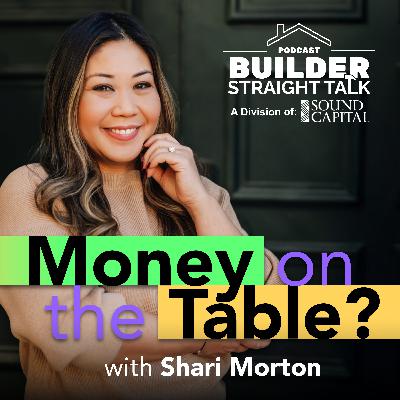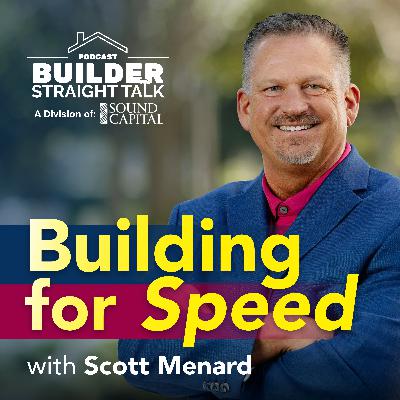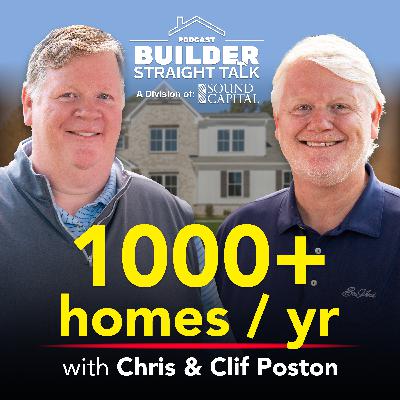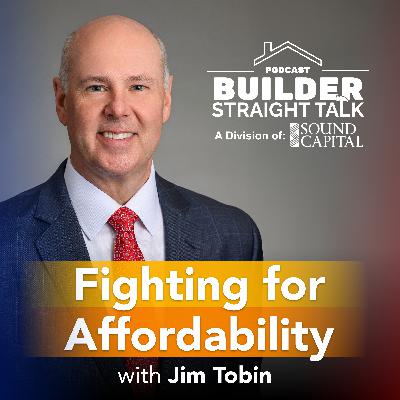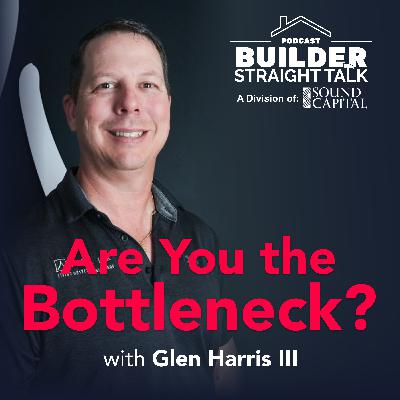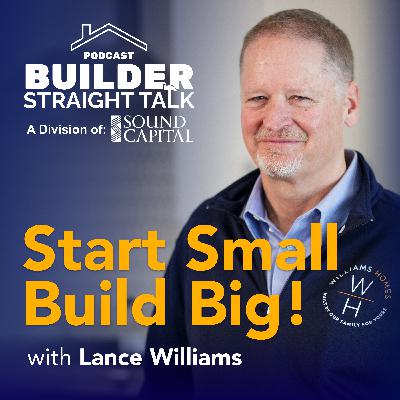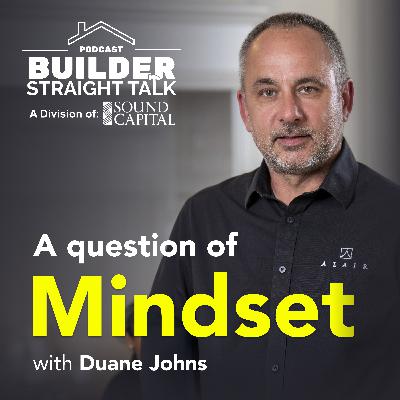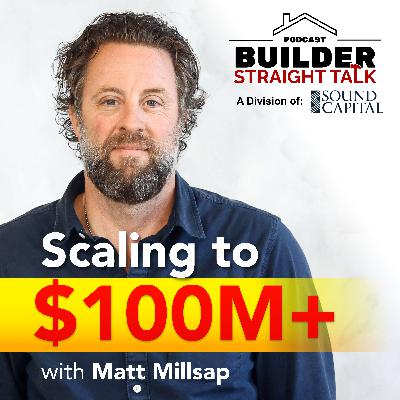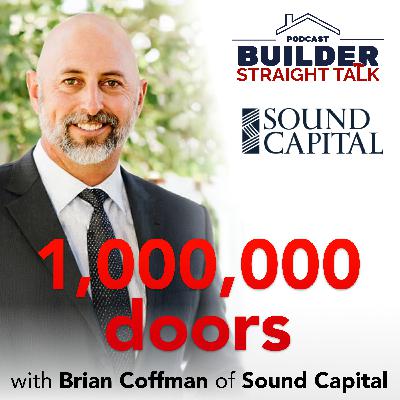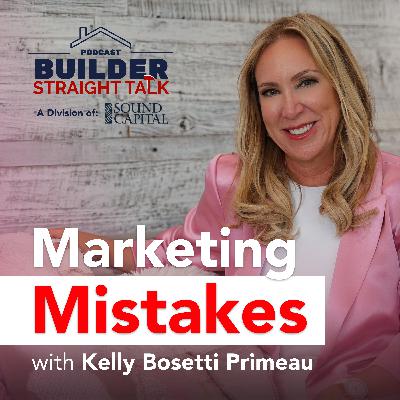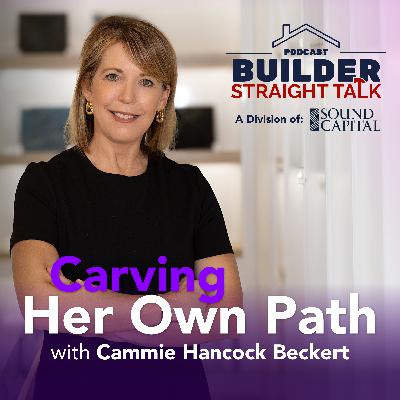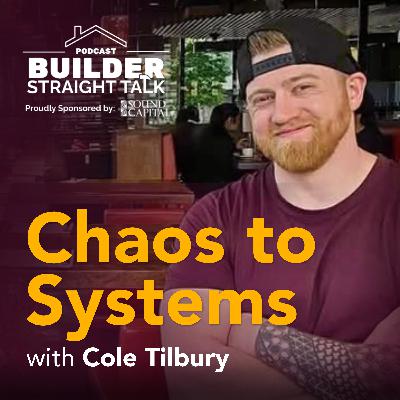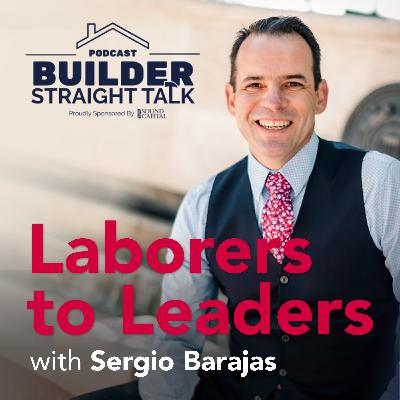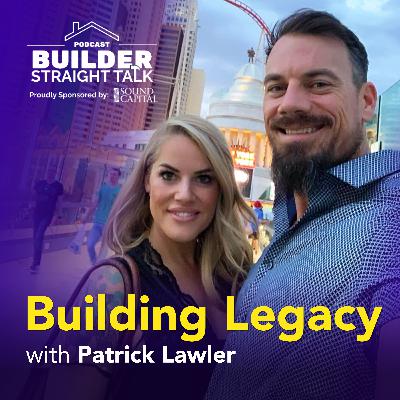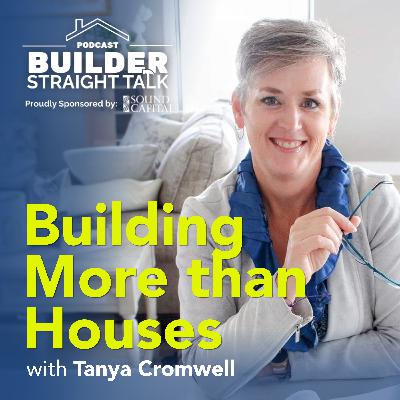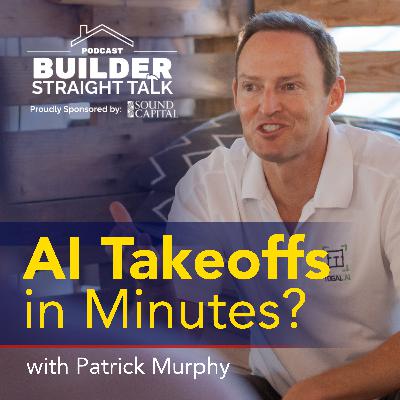Debunking the Modular Myth with Ken Semler
Description
If you've ever driven past a construction site and wondered why we're still building houses the same way we did 50 years ago, this conversation is for you.
Michael sits down with Ken Semler, President and CEO of Impresa Modular, who's spent the last 25 years trying to get people to understand what modular construction actually is. And no, it's not a double-wide trailer. That's the first misconception Ken tackles, and honestly, it's the one that's been holding the industry back for decades.
Ken's journey into modular started almost by accident. He was flipping houses back in 2003 when his day job wanted him to move to New York City. He said no thanks, went full-time into construction, and discovered that modular fit perfectly with his crew's skill set. Eight months later, he was the number three builder with his factory. The timing was right, the boom was happening, and modular allowed him to do more, faster.
But here's where it gets interesting. After the 2008 crash, Ken pivoted into commercial work with school systems, which kept him alive during the recession. Then in 2009, he told his wife he was going to start selling homes over the internet. She looked at him like he was crazy. Fifteen years later, that's how almost everyone discovers and researches homes. Ken went on to become the first nationwide modular builder, getting licensed in 44 states, creating a franchise system, and even launching a media company that publishes the industry's only dedicated magazine.
The conversation digs deep into what modular construction actually means. Ken breaks down the difference between manufactured homes (built to HUD code, the affordability standard) and modular homes (built to the same International Residential Code as stick-built houses). The key difference? That little label in your kitchen cabinet. Red tag means manufactured. The other label means modular. And yes, appraisers and banks still get this wrong all the time.
"There is no such thing as a modular home. It's a house built using modular construction."
What really stands out is how Ken describes the factory process. A four-module, two-story home that would take six months on site gets built in three to eight days in a factory. While the foundation is being poured on your lot, your house is coming down a production line with 18 stations. By the time the foundation is ready, your home shows up on trucks, gets craned into place, and you've got a weather-tight structure in 36 hours. Ken shares a story about going from a hole in the ground to a 2,200 square foot house with a wraparound porch in a day and a half.
"At the factory, a volumetric module was created, why the foundation's being done, and we, then with a crane, show up a day or a week after the foundation's complete and put these modules that are interior, the interior's complete."
The quality control aspect is eye-opening. Factories don't use 16-penny nails at every joint, they use lag bolts and industrial epoxy. Ken jokes about customers calling him three years later, frustrated that it took them three days to tear down a wall for an addition instead of the morning they expected. The modules have to survive transport at 65 mph over potholes and up mountain roads, so they're built to withstand level two seismic activity as standard.
"We have industrial epoxy. So when we spray this industrial epoxy on to the drywall and the stud, it doesn't come off."
The efficiency gains go beyond speed. Ken points out something most people don't think about: that 30 cubic yard dumpster sitting outside every job site, getting filled once or twice per house.
"You look outside of any job site and you'll see a 30 cubic yard dumpster and that usually gets filled once or twice per house and hauled away. And what's lost on most people is you didn't pay to haul it away and have it there, but you paid for everything in that dumpster."
In a factory, they have three cubic yard dumpsters marked for wood, gypsum, and recycling. Very little actually goes to a landfill. The whole system is built around reduce, reuse, recycle, because every scrap that gets thrown away is money lost.
Michael and Ken also tackle the harder questions. How do you finance something that's being built in a factory before it hits your land? How do you convince banks that this isn't a mobile home? What happens if a factory goes under mid-project? Ken's answer to that last one is surprisingly logical:
"If a project gets half built and say, say it's a hundred unit project and 50 units get built. Well, I've paid for those 50 units as they come offline, but I've got 50 units that guess what? They're packaged, they're finished... I actually have an asset that's protected. It's just not real estate."
Compare that to a half-built house sitting in a field, exposed to weather and looters, and suddenly the risk profile looks different.
The conversation touches on the bigger picture too. We're short at least 250,000 homes per year in the U.S., and Ken thinks that number is low. Labor has evaporated. For every five construction workers who retire, only 1.5 enter the trades. We've failed an entire generation by pushing everyone toward college and away from skilled trades. Meanwhile, the plumber showing up in his van might be a multi-millionaire with his own jet.
"Labor in the U.S. has evaporated. I mean, agree with him or not, the current administration is taking... the two biggest users of illegal labor has been probably the construction industry and the agriculture industry in the U.S. And that labor's going out the door."
Ken's franchise model with Impresa Modular is trying to solve the knowledge gap. Most factories don't train new builders. They just expect you to know what you're doing. Ken's seen too many people make $10,000 mistakes on their first three houses because they didn't understand transportation logistics or how to design across module seams.
"We've done a horrible job of training new to modular builders. And so if you would decide you want to get into modular and you call a factory, there's really no place to learn unless you've worked with somebody before."
His franchise offers the training, factory relationships, and support system that didn't exist before. The Monday mastermind calls have evolved from Ken and his team answering questions to a genuine exchange where he learns as much as he teaches.
There's genuine optimism in Ken's voice when he talks about 2026. Interest rates are coming down, labor costs are forcing people to look at alternatives, and lenders are finally figuring out how to work with modular projects. He's been predicting "this is the year for modular" for a while now, but this time feels different.
"I think interest rates are coming down. I think, you know, labor is at a premium. I think people are doing the research... I kind of think it's the perfect storm for Modular in 2026."
The housing crisis isn't going away, and the traditional construction industry can't scale fast enough to meet demand.
This isn't a sales pitch for modular homes. It's an honest conversation about why we build the way we do, why that might need to change, and what's actually possible when you move construction into a controlled environment. Whether you're a builder, developer, or just someone interested in where the housing industry is headed, this one's worth your time.
Ken Semler
Ken Semler is President & CEO of Impresa Modular, the nation's first internet-based custom modular home builder, now operating in 43 states and partnering with more than 20 offsite factories. With over 25 years in construction, Ken has become a national voice for modular innovation, scalability, and modernizing the building process.
He also pioneered Impresa Modular Franchising—the first modular home franchise system in the U.S.—helping builders and entrepreneurs adopt factory-built precision in their local markets. A frequent speaker at national builder conferences, author of 200+ articles, and publisher of Offsite Builder Magazine, Ken continues to educate, mentor, and push the industry forward.
Ken Semler on LinkedIn: https://www.linkedin.com/in/kensemler
Impresa Modular website: https://impresamodular.com
Chapters:
00:00 Introduction
02:16 Ken's Origin Story
03:16 Transition to Modular Construction
05:40 Defining Modular Construction
08:18 Modular vs. Traditional Construction
10:17 Modular Construction in Practice
12:03 Advantages of Modular Construction
21:01 Franchising and Business Model
34:33 Challenges and Mistakes in Modular Construction
35:42 Avoiding Common Modular Home Mistakes
35:53 A Train Station Home Story
37:15 Building Multi-Story Modular Homes
41:38 Challenges in Modular Home Financing
45:49 Future of Modular Construction
54:31 Impresa Modular's Business Model
57:53 Importance of Trades and Education
58:15 Building a Modular Factory

